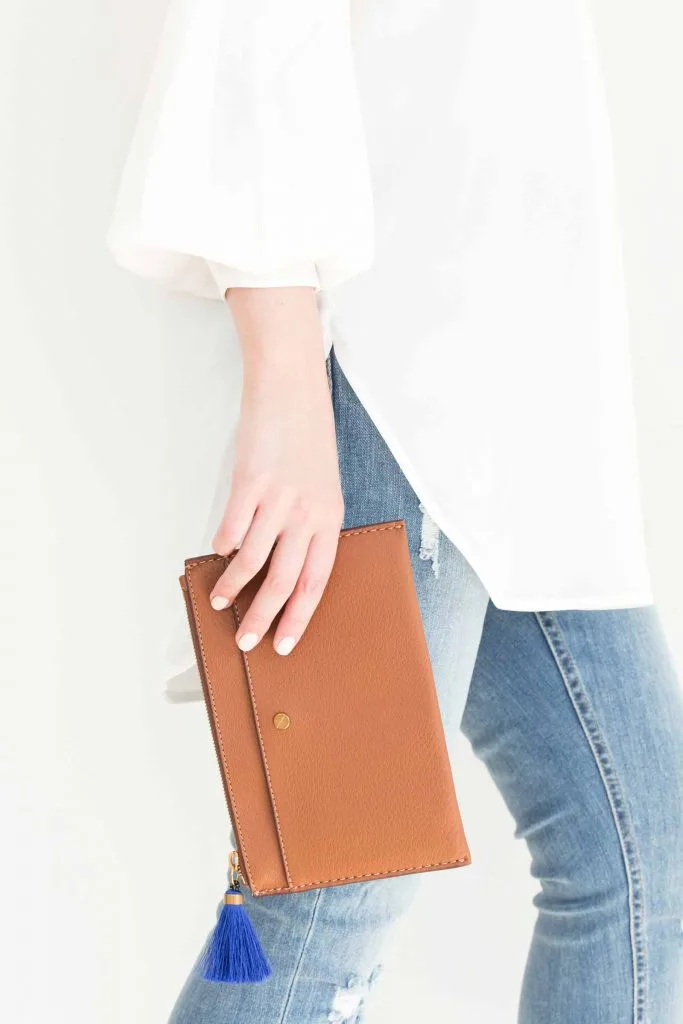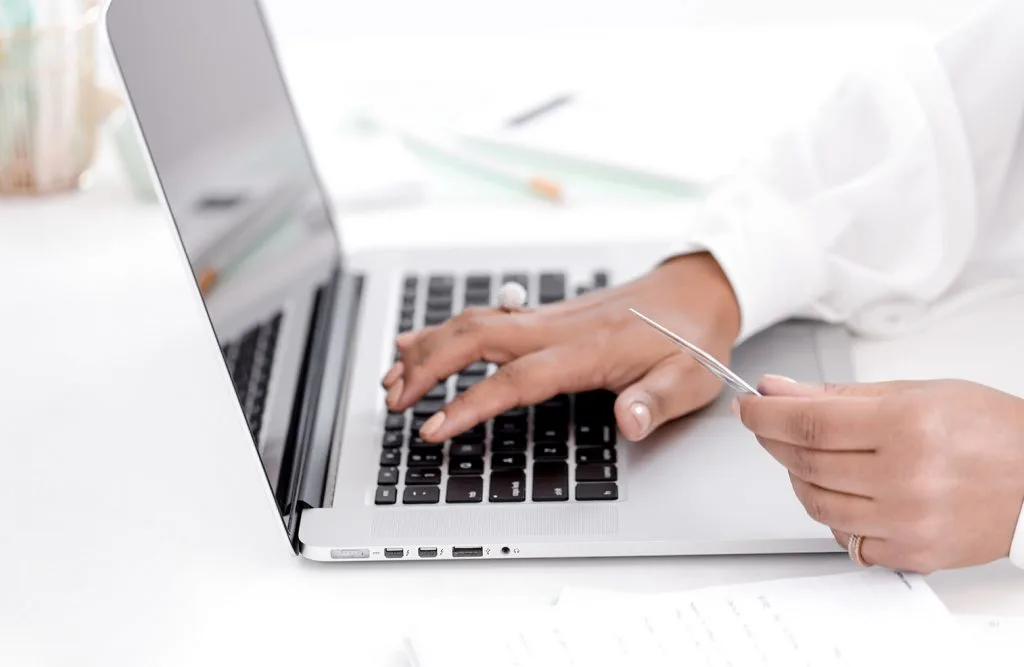How do you feel when you start talking about money? A little uncomfortable? Feel like you need to change the topic quickly? Perhaps you’re embarrassed or ashamed of your bank balance and credit card bill?
Our financial self confidence can take a massive hit when we are in a less than favourable financial situation. But how do we get out of it? How do we start to feel more financially confident?
Here are some ways you can shift that uneasiness and financial shame to financial confidence, starting right now.

1 – Stop Hiding From Your Finances
This is step number one and is an absolute must if you want to become financially confident and get a good understanding of not only your current financial situation, but where you are going with your finances.
If you’ve been hiding from your finances for a while, then chances are this isn’t going to feel good. But once you’ve checked where you are at, you can move forward and start taking control of your finances.
There are a few things you need to look at:
Your Current Financial Position
This is like a quick snapshot/overview of where you are sitting right this minute. Check everything. Any bank account you’ve forgotten about, store credit cards, Afterpay accounts, personal loans, student debts. Everything
Write it all down in an ‘asset’ and ‘liability’ sheet – savings and money on hand being assets, and any debts or money owning being liabilities, and tally it all up.
You now know exactly where you stand financially
Your Current Income
You need to know how much money you have coming in. This includes any money from jobs you work, dividends or interest paid, or any money from investments. Include everything.
Your Current Expenses
Don’t hide from your expenses. Include everything you can possibly think of here. I find the best way to do this is to work out how much everything is going to cost over a year, and then divide it into pay cycles.
This way I can include things like car servicing, yearly insurance premiums, everything that it is going to cost me to live my life.
Once you have your total numbers, divide it by your pay cycles and you have your current expenses. Be sure to include things like groceries and a spending allowance too.
How do your current expenses look in comparison to your income? If your expenses are greater than your income, you need to either increase your income or cut your expenses (or both).
Now you have an understanding of where you’re standing financially.
One of my most favorite tools for managing and tracking my money is PocketSmith. It syncs all of our finances, including our loans and assets – which means it shows us our overall wealth. It’s also great for finding and tracking changes in our spending (so we can budget accordingly). I’ve tried so many different apps and this is the only one that I loved. PocketSmith is so easy to use and my husband loves how he can see how much we have left in our budget at anytime.

2 – Have An Emergency Fund
I never realised the value of having an emergency fund until I had one. I had previously always just kept a credit card ‘in case of emergencies’. But the thing was, that credit card was always close to being maxed out so if an emergency came up, I was screwed. And I know I’m not alone in this.
When I decided I wanted to get serious about achieving our financial goals, I created an emergency fund. Different people have different opinions on how much you have in there. Some say $1000, others say $2000 and some even say 3 months worth of expenses.
I feel like 3 months worth of expenses is a huge amount when you’re starting out and can feel incredibly overwhelming. We looked at the highest insurance excess we had (or co-pay) and made sure we had that amount in an emergency fund first. This meant that if anything happened and we needed to pay our insurance excess, then we had at least that much in an emergency fund.
Your emergency fund is just that – for emergencies. It isn’t for when you undercut yourself on your budget, or because the Black Friday sales are coming up. This is your true emergency fund.
Once you have that money sitting there, you’ll be amazed at how much stress is relieved. Knowing that no matter what comes your way, you have money sitting there to pay for any reasonable emergency is just so, so good.

3 – Cancel Your Credit Cards
If you are living on credit, then you’re adding to your debt. I don’t know when credit cards became a fashion statement or the ‘cool’ thing to do. I’m far more nerd than cool so it is beyond my understanding. But if you look at mainstream media, you’ll start to notice all of these indicators that push you towards living on credit.
This means you aren’t’ in control of your finances. The credit card companies are. And there is no financial confidence in that.
If you have your emergency fund, and you’re budgeting your money, then there’s no need for a credit card. I’d go so far to say that credit cards are for people who are scared of their money. There, I said it.
And before you tell me that you always pay your credit card off on time, or that you get fantastic points and benefits from having a credit card, please stop. If you are reading this article, and you don’t feel confident in your finances, then having a credit card is not for you. Regardless of what positive spin you try to put on it. (Okay, tough love over now).

4 – Budget Like A Business
What’s the goal of a business? To be profitable! We should have the same goal for our own personal finances.
For our finances to be profitable, our expenses need to be less than our income, and we need to either have no debt, or at the very least be working towards paying it off.
This is why it is so important to understand our finances and to not live on credit (you’re not profitable if you’re living on credit).
Start treating your finances like a business, aim to be profitable and you’ll be able to have so much more confidence in your finances because you know you’re in a good financial position.

5 – Set Financial Goals And Plans To Achieve Them
We all should have financial goals that we are working towards, but the thing a lot of people forget is to create a plan to achieve these goals.
It’s all well and good to say that you want to pay off your debt, but how are you going to do it? Paying the minimum repayment will get you there, but how long will it take? Can you get there faster?
Set your financial plan, work out the steps to get there, and make it happen. Include it in your budget and make it a fixed expense. Surround yourself with motivation. Track your progress. Know exactly when you will achieve your goal.
Imagine being able to say ‘I’m going to pay off $20k in debt by the end of next year and I’m going to do it by (insert plan here).’ How empowering is that? Talk about financial confidence.
You don’t have to be out of debt to be financially confident. You don’t have to have a massive income. You don’t have to splash money around either. Financial confidence is all about how you feel about your money and how you feel about your ability to manage and control your money so it works in your favour in your life.
Educate yourself about money (you’ve already started, that’s a huge first step) and even if you only do a few of the things on this list, you’ll be on your way to being more financially confident.



